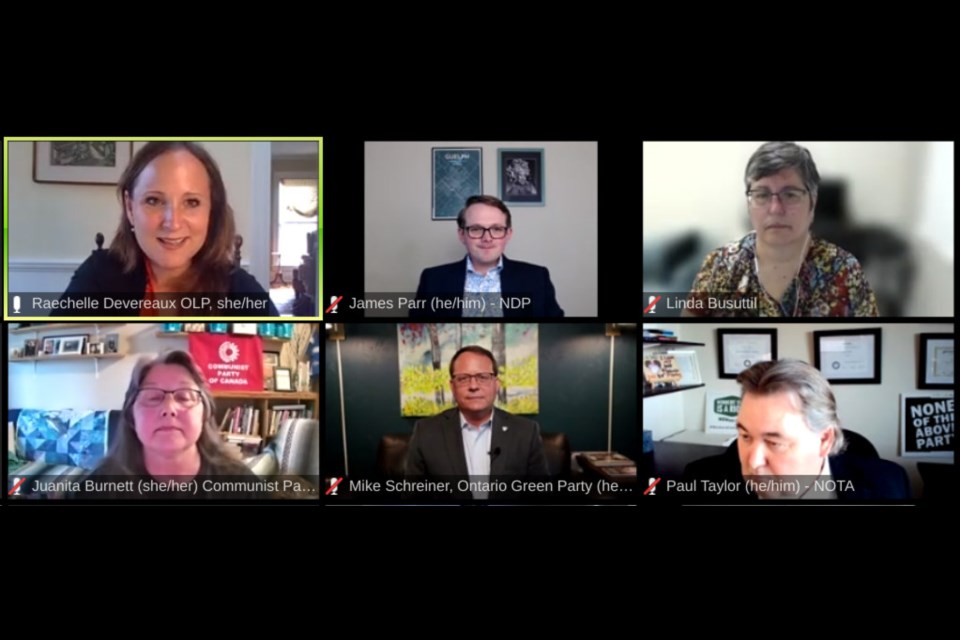Change is needed on a wide variety of fronts – from health care and education to housing, environmental policy and the electoral system – agree candidates seeking to represent Guelph following the June 2 provincial election … at least those who participated in a virtual town hall-style event on Thursday evening.
What they didn’t always agree on is what kind of change is needed, though there was overlap of ideas among them.
Five of the riding’s seven declared candidates participated in the event, hosted by Guelph/Wellington Coalition on Social Justice.
Progressive Conservative candidate Peter McSherry and New Blue’s Will Lomker were not in attendance.
“Everyone was invited,” explained Karen Rathwell of Wellington Water Watchers, which is one of numerous groups behind the event, along with members from Advocacy Guelph, Citizens Climate Lobby, Council of Canadians - Guelph chapter, Central Student Association, Guelph District Labour Council and various unions, among others.
Though each of the participating candidates called for sweeping changes on a variety of topics, the biggest difference in approach came when candidates discussed poverty-related issues. Many of them want to see significant increases to the minimum wage and tax reforms, along with a variety of restrictions aimed at easing the housing crisis.
“We are forcing people to live in crushing poverty,” commented Green Party candidate Mike Schreiner, who urged the immediate doubling of social assistance rates and a $23 per hour minimum wage.
“We know the social assistance system creates a lot of lack of dignity for people.”
In order to pay for those changes, and others, he’d like to see a two per cent tax increase on large corporations and higher rates applied to the province’s highest earners.
Liberal candidate Raechelle Devereaux wants to see the universal basic income program – initiated by the previous Liberal government in 2017 and scrapped by the Progressive Conservative government in 2018 – reinstated.
“It’s really to find the best pathway to what will be a transformative change to the province of Ontario,” Devereaux said, noting a Liberal government would increase taxes on individuals who earn more than $500,000 per year as well as businesses that see more than $2 million in annual profit.
“Everyone deserves a good life, regardless of their circumstances,” added NDP candidate James Parr, criticizing the “criminally low” Ontario Disability Support Program rates.
He called for rates to be increased by 20 per cent, with a $20 per hour minimum wage, as well as full health and dental coverage, including prescribed medication, to improve people’s quality of life.
Juanita Burnett of the Communist Party supports the idea of a $23 per hour minimum wage and proposes a 32-hour work week.
“That means you have time to breathe,” she said of reducing the work week.
Burnett would also like to see the “incredibly embarrassing” social assistance rates increased to provide a guaranteed livable income.
“We need to start respecting each other,” noted None of the Above Party candidate Paul Taylor, who said he believes in people being paid a livable wage.
